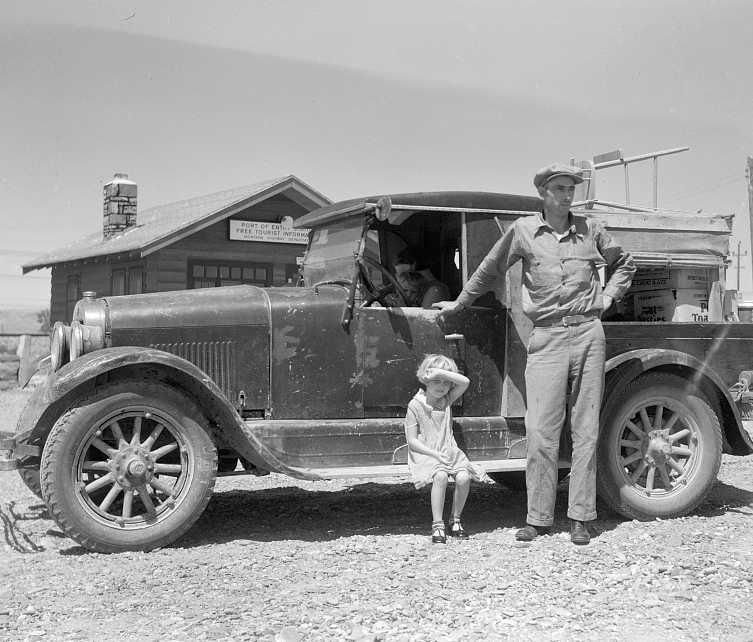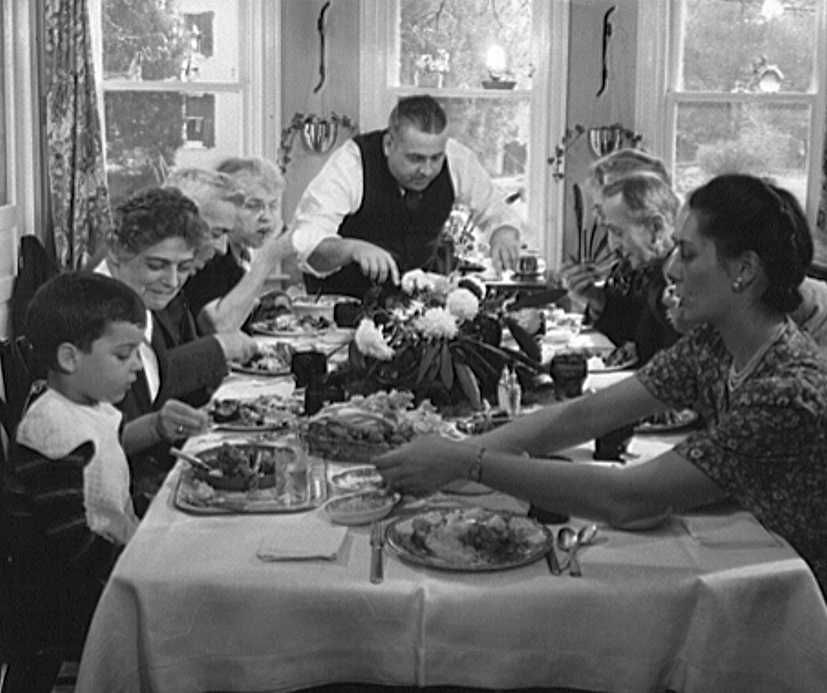
Job hunting in the coastal cities was dangerous and risky because of the large movement to unionize all the Pacific Coast ports.
CALIFORNIA
Archie Lawson
Born 1911, cattle ranch at Flasher, ND. Left in fall of 1932 from SD, age 21
Freight Trains West - memoir:
The fifty mile ride to Sioux City went well, but from then on, we rode freight trains. It was illegal to ride either freight or passenger trains, but they would keep you off the passenger trains only. We rode a daytime freight to Omaha and caught the 10:00 p.m. freight to Kansas City. We both fell asleep riding in an open coal car. We had missed one night of sleep completely so we could sleep by lying down just about anywhere.
We fortunately got a couple hours of sleep before being rudely awakened by the second meanest man we met on this trip. Somebody kicked me and told me to stand up. He shined a flashlight at me and showed me a shiny revolver. He kicked Jack and woke him the same way and demanded our money.
We gave him our change, totaling about a dollar between us. We both had six or seven dollars, but at Jack’s suggestion, we had folded the bills and slipped them into a slit in the lining of our belts. We felt pretty lucky we didn’t lose all our money or get hurt.
The guy went to the other end of the car, climbed out and went on down the train. He was dressed like a brakeman and maybe he was but, of course, we will never know. Someone told me years later that some of the train crews out of Kansas City used to hold up the bums riding en route.
We slept well but I can remember looking at the house before leaving the next morning and wishing someone would come out and say, “How about some breakfast, boys?” We hadn’t eaten the night before and were getting hungry.

We did have the experience of begging for food a few days later. We had been hitchhiking for several days with poor results and our meager money would not last so we decided to beg before it was gone.
I went into a store and asked for “something to eat”. But it was not that simple! It was an emotional, shameful-thing that is almost impossible for me to explain. I was practically crying, my face was red, I felt defeated.
He gave me something - I could never remember what. I can only remember that I went out of there like a dog with his tail between his legs and I made up my mind then and there that that was the last time I would go begging!
Broke rocks for cell bed and breakfast in Wamego, Kansas
We had to find a place to sleep, preferably a place safe from attack. We found the constable and asked him if we could sleep in the jail. He took us to a cell in the jail, locked the door, and said he’d see us in the morning and what’s more, he said, “You can break one box of rocks for your lodging and you can break one more each for your breakfast.”
In the morning, we found he wasn’t kidding. He took us to a pile of big rocks, gave us each a sledge, and a box about three feet by one and one-half feet wide. I guess it took about two hours to fill the boxes by breaking large rocks into smaller ones. I can remember looking at each other and trying to make light of it. We called it a two man chain gang.
Jack said, “Years from now we’ll look back at this and think it’s funny.” But, at this writing, it’s been forty-seven years since and it still is not funny.
When he came back and offered breakfast if we broke another box each, we said, “No, thank you.” We were getting the message. They didn’t want us around there.
And we didn’t want any more of Wamego, Kansas! We walked to the edge of town and soon got a ride out, but we were really nervous until we got several miles away.
We were descending the steep slope of a cut to the tracks but couldn’t do it quietly as loose rocks would dislodge and make a racket as they tumbled down. A flashlight picked us up from below.
“Come on down - you’re covered. Descend and don’t try any funny stuff.” It was a real rough and tough sounding voice. The light was on us all the way down. When we got there we met, what two different people have told me since, one of the meanest men they had ever seen or heard of – Yermo Red!
He took us to a shack somewhere in the yard to interrogate us. When we entered the low, dimly lit, two-room shack, we could see that it had board benches and a long table, probably used by the yard employees to eat their lunch. There was a stove at one end which would help take the chill off in winter.
Yermo Red was a heavy-set man, with piercing eyes and a gruff voice. He asked Jack where he was from, what he did there, why he was going to California and made him feel guilty that he was in that yard in Barstow. Then he asked me the same questions. He let Jack and me go when he found out we were together. He talked very tough and threatening. Said if we were caught in Barstow that night, we’d get thrown in a work camp and we would not ride a freight out of town. So we could go out on the west side of town, build a fire to keep warm until morning and then walk the 130 miles to Los Angeles the next day.
He made the other boy take his shoes off and kept him there. We found out later that he was a sadist. He worked for the railroad as a yard bull, but he misused his authority to beat up any transient he caught alone unmercifully.
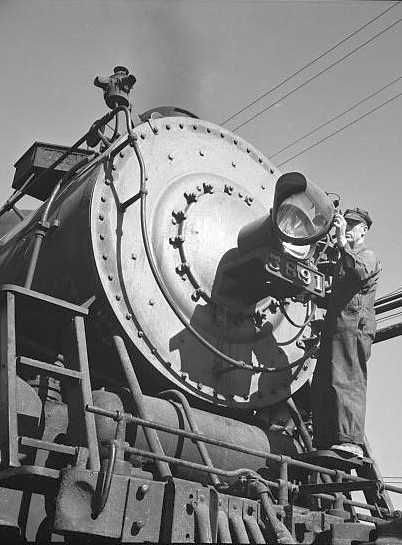
CALIFORNIA
Archie McPherran
Left Trout, Oregon for Nebraska…
After suffering cold for hours, the train finally stopped long enough for us to move to a closed boxcar, already occupied by others.
We didn’t know how many were in the car until the train got underway and the men began to light cigarettes. It was eerie seeing those lights glowing in the dark, adding to our uneasy feeling about the men sitting in rows on both sides of the car. These were men we had always referred to as bums or hoboes.
The next morning the train terminated in Billings, Montana. The bums, now our fellow travelers, cautioned about going into some cities because of the possible arrest by railroad detectives, who they referred to as railroad bulls.
CALIFORNIA
Arthur Hunevan
I was riding freight trains after I had run away from home in California in 1932. A friendly bindlestiff advised us that if we wanted to get somewhere, "The freights", were the way.
Our travels took us then to Belt Junction, six miles out of Indianapolis where our Odyssey began. From there we made our way to a relative in Connecticut via Lima, Ohio to Conneaught to Buffalo, Rochester, and Corning, New York. Here we took an illicit ride on the "Erie Milk Train" bound for Jersey City. It was a harrowing ride between the `blinds" at speeds over 80 miles an hour.
We held it down into the yards at Binghamton where the railroad bulls accosted us. We had become thoroughly desiccated, ballast-blasted by the eighty mile winds between the cars. The wind picked up the crushed slag used for ballast between the ties, sand blasted. our faces and tore the fabric of our clothes. We both had a hundred or more tiny cuts on our faces. These cuts bled and the blood mingled with soot from the engine. This, together with our frayed clothing, gave us a downright miserable appearance.
Our youth, our naivete, and our bedraggled appearance must have aroused a certain amount of compassion in the railroad detectives. They had been riding the train all the way from Corning but had never spotted us even though we had gotten off at El Mira to get a drink from the station drinking fountain. We were allowed to go with the admonishing to get on the highway and stay off the trains and out of the yards on penalty of thirty days in jail.
My friend and I parted company after a weeks' stay with my grandmother in Connecticut and I was later to make the trip back to California by the freights with many an adventure and many encounters with life in the raw. I encountered rejection and compassion by my fellow human beings, rejection from those overwhelmed by our numbers (near the railroad tracks) and compassion from those more removed from the railroad. I lived in an almost cash free economy and bartered work for food.I stayed in Sallies (Salvation Army) where they were available and slept in boxcars or the open when they were not.
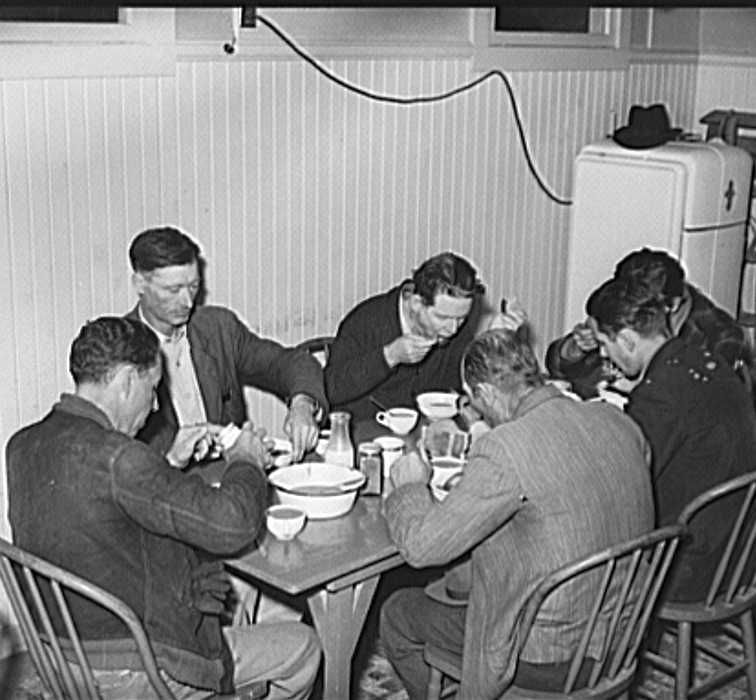
I am now 77 years old, a retired teacher and attendance counselor from The Los Angeles Unified School District. I knew the full tragedy of the Great Depression of the Thirties. My father was an electrician in the building trades which went from a 95% utilization in 1929 to 5% most of the thirties. We almost lost our home for a $1,500 mortgage on a house and lot that cost my father $4,500.
In 1933 I joined the Civilian Conservation Corps and served in the forests of Northern California for 8 months at $30 a month $25 of which was sent home to bolster my Mom and Dad's income and helped make the payments when our home was refinanced by the Home Owners Loan Corporation, a New Deal Agency.
I commuted by the freights from the CCC camps to my parent's home in S. California and had the unique experience of being almost suffocated in a mile-long tunnel through the Santa Susana Mountains on the Espee railroad riding in a gondola three cars back from the steam engine pulling the train
CALIFORNIA
Basil Maita
"The Mexican people were very kind to us. You could always get some beans or tortillas.”
There were about 500 men women and children on a hundred car freight train heading west from Texas. Stop for water every six or eight hours. It was at Gila Bend, Arizona and when the train stopped at midnight. All the hobos, families were lined up from the engine to the caboose.
Brakemen and railroad police ordered all people with any money please step forward. From 500 people there were about 100 of us were marched to the small town to get a room and restaurant to eat and sold us a ticket on a passenger train.
The train never did come so after being there seven days we all went broke. They told us to get out of town. This was one way to keep the economy of the town going.
Bakersfield, “biggest hobo jungle in the country.”
People were very kind, loving, we all cared for one another, very sad but honest. I never forget.
CALIFORNIA
Ben Crump
Child labor laws were virtually non-existent.
"I remember arriving in a hobo jungle with 1,800 hoboes at Phoenix, Arizona. That was the day FDR got elected."
CALIFORNIA
Ben Fowler
Dust Storm sent him onto road/ destroyed farm crops - "sand dunes in creases of pillow."
Trapped by women decoys used by bulls.
Tossed suitcase up into moving boxcar. Couldn't catch it. Lost all possessions.
An old bo called me "Smiling Kansas." I would see a lot of groups later who knew or had heard of Smiling Kansas.
Invited to rob bank.
"Justice:" He was stabbed -- his attackers got 60 days because he was a transient. Judge said they would have got 6 months if he was a local!
Philosophy: I was too stubborn and full of pride to go back until I felt I had accomplished something.
Got off boat on east coast after WW2....I haven't picked up another gun as long as I lived.
In Kansas, when banks closed, people would pack up all things in their cars and leave their animals at the bank.
CALIFORNIA
Bill Bender
"Ah, sweet memories...In January I begin my 75th trip around the sun and occasionally I still feel the sting of a cop's billy club beating on the bottom of my soles from snoozing in a RR station to keep warm."
Best jail + below ground in Nampa. ...I learnt more about life in the next 24 hours watching women stride over that grate. Lots of dirt in eyeballs, but what a view!"
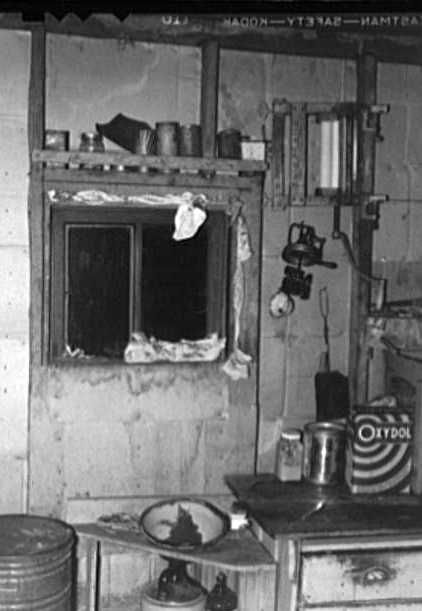
CALIFORNIA
Bob Zupan
Born St.Cloud, Minnesota. One of 12 children
At age eleven, Bob was shipped out to uncle’s farm in Pine river MN for the summer.
I learned about life on the farm, a lot more than living in St. Cloud. After the first year there I knew how to milk cows, harness horses, make hay.
My aunt was not a bashful lady. Work was what every child needed. Lots of it. I worked from six a.m. to nine p.m. six days a week. Not child abuse. Child education.
After seven years on this farm, I graduated out of Grade School. I started to feel that there was more to life than this.
I was on the farm and it didn’t look as if I was going to get any more school learning out there so on a Sunday after church I forgot to get into the Model T and head back for the farm. I started walking south….
At 13, I stood 5 ft 7 inches and weighed 130 lbs.
I walked and that evening I got to Brainard MN. It was dark and I got stopped by the Brainard police.
I told them some story, it must’ve been good. The police got me a sandwich and bottle of milk. Took me to jail and told me they would turn me loose.
Monday morning they took me to the freight yards. Told me to get in the boxcar and stay there. The train started to move. I was a bit afraid because I didn’t know where I was going.
I was returned home. The next few days I spent checking out about the trains that went through St. Cloud. I talked to some people down in the jungle where the hobos stayed.
I got out of my house and ran like hell for the Great Northern Freight yards. The train was making up and I was ready. My buddy didn’t show and I was then in no man’s land; so on the train I got.
Rode as far as Fargo, ND, where he was again caught and returned home to St. Cloud.
”Child education"... So after the smarting stopped, I again started to plan. This time no buddies to talk to.
Ran away again, getting lift with trucker and got four month job at garage before owner learned truth. Earned $100 which he took home.
”I said, here’s my summer wages. My father took the bills looked at them and never said another word about anything.”
Next spring, after signing up for high school, I took off again.
“Some trainmen would take a hammer on a long rope and leave it down between the tracks. The hammer would hit the roads ties and bounce. Sometimes making contact with rails.
Riding the rods... There were two metal rods that ran under the cars about 14 inches apart. One would drape one leg over rod and the other over the other rod. It was quite an experience.
If you were lucky enough to scrounge extra rations, nobody would ask you for any. Only when one invited a fellow traveler to share would they come. Even tobacco or cigarette makings were not bummed from each other. One’s wealth was a thing that was honored.
In all my travels which consisted of 26 states did I ever run into any kind of misbehavior from fellow travelers.
I saw women sacked out in the jungles and they felt safe. And they were safe. I met women who could grab iron as good as any male person. Some a lot better.
CCC camps started up and the next four years I worked as a cook in the CCC camps. I hung up my yen for riding the rails.
CALIFORNIA
Burland Webster
Mainly adventure and education, but also to alleviate financial burden.
Diary excerpt: July 5, 1934
We were very busy doing nothing. Various parts of our anatomy are very sore. We have two spring pads that we have a special name for, that we sit on. We had a marvelous breakfast of three figs. Dinner consisted of a part of a loaf of bread and one can of beans among us. Supper is the most delightful meal as it consists of a hunk of bread. I say hunk cause it broken off rather than sliced.
Today I met a boy from Renton that I knew is kinda homesick. The one unlimited subject of conversation is eats, I might also add that it is an unforgettable subject. We have two canteens.
Every time we stop two of us dash in search of water.
Still in Montana and the train stops at every one roomed shanty. We have surly seen some dilapidated looking farms and old homesteads. Just as the beautiful Montana sun was sinking over the rugged hills I saw two figures dash across in front of the sun. I called the boys attention to the silhouette. It was a man and a girl. We watched them play a few minutes then slowly melt together in a lovers embrace, then they dashed over the hill. All of us sighed. Hammond had such a sad look on his face. I felt lonesome. Jack just said doggone and looked forlorn. Clyde looked kinda sad.
Diary excerpt: July 6, 1934
Woke up and the first large town which was very small was Miles City. One thing I have noticed about Montana is that it has many churches. Our breakfast consisted of you guessed it: Figs, so it was very easily fixed. We didn't even argue over who should do the dishes.
Out of Montana at last! and are in North Dakota were every thing is green due to recent heavy rains.
The wind surely did blow, we could not look at the views because of all the dust. Had such a hard job just to keep warm. Stayed in sleeping bags till we got to Aberdeen, South Dakota.
